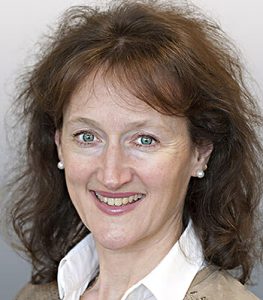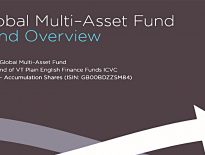Robo Advisors 11 – Netwealth Interview

Today’s post is the transcript of an interview I carried out recently with the founders of robo-advisor Netwealth.
Netwealth Interview
Regular readers will already know that I am excited by the potential benefits of Robo Advisors, but less enamoured by the offerings to date.
- You can find a list of my ten previous articles on the topic here, along with a summary table of features and charges at various portfolio sizes.
I reviewed Netwealth (( I’ve been spelling it NetWeath up to now, but they have corrected me )) back in June of this year.
- Following that review, I was invited to meet the founders – Charlotte Ransom and Thomas Salter.
First, here’s a brief summary of what I said in June.
- Netwealth offer discretionary management, either through a questionnaire-style website or by talking to an advisor.
- They make the day-to-day (actually, the month-to-month) investment decisions on your behalf.
- They offer SIPPs and ISAs (and JISAs).
- There is a £50K minimum investment for a general account.
- But you only need £5K to open an ISA. ((This was a mistake, as you will see below – you always need to be, or to be attached to, a lead investor with £50K ))
- And you can join a Network (see below) with as little as £1K.
- Merryn Somerset-Webb is on the Advisory Board.
- As well as a platform fee, there is an annual fund charge of 0.25% (an estimated average rather than a contractual guarantee).
- This means that total fees are 0.90% below £250K, 0.75% below £500K and 0.6% above £500K.
- Netwealth offers group discounts to what it calls Networks, which are limited to 8 people and would usually comprise family groups.
- The fees are calculated on the total investment across all members, though the pots are kept separate.
- This is a better deal (bigger potential discount) for those who contribute the least – presumably the idea is that within families, people won’t care.
- But the fees never drop below 0.6% pa, which is too much for me.
- Netwealth provide performance data for their funds
- But their track record isn’t very long.
- And they use industry benchmarks that will be more familiar to finance professionals than to the typical private investor.
The interview
I couldn’t quite make it to twenty questions, and ended up with nineteen.
Note that the following transcript is taken from notes rather than an audio recording, and that the interview took place more than six weeks ago.
- So it’s entirely possible that human error could have crept in.
I also haven’t distinguished between replies from Charlotte and those from Thomas.
- I’ll refer instead to the pair of them as NW (Netwealth).
The questions
1 – I reviewed your site back in June 2017 – has anything significant changed since then?
NW: We’ve added a portfolio cost calculator, and a list of things that you should be asking your current IFA (if you have one). And we offer seven different portfolios rather than five. [7C : I think I might even have said that only four risk profiles were available – this was a mistake on my part, as there were always seven options.]
2 – Who is your target investor (age, occupation etc)
NW: The majority of our investors are aged between 40 and 60, and 60% of them are men. They are mostly professionals (bankers, lawyers, doctors or entrepreneurs) – or they are already retired. We are aiming for people who are too time-poor or compliance constrained to go down the DIY route.
NW: Many of them will be somewhat cynical about traditional wealth managers, perhaps because they themselves already know “too much” about investing. Others will be those who don’t enjoy investing and may be a little scared of the whole process.
NW: We have a bias towards investors whose aim is to sleep well, whilst still managing to achieve some growth in their investments. The longer-term their objectives, the more we aim towards growth. [7C: We covered this approach under Don’t Get Rich Twice.]
3 – What is your average portfolio size?
NW: The average portfolio size is just over £300K. [7C: I think this is per Network, rather than per member.]
4 – Your service is discretionary – a “Forget about it” style, or as the industry might term it “Do it for me” rather than DIY. Why did you take this route?
NW: We wanted to offer a fully human, fully in-house professional services at a lower cost. Technology enables to be more efficient and transparent than our competitors, as reflected in our 0.6% pa fees, compared to the average wealth manager fee of 1.8%.
5 – Who are your biggest competitors (in robo-advice, and also in comparison to investment platforms and wealth managers)?
NW: We are in a niche of our own in targeting specifically the traditional WM industry, who we believe charge too much, are not transparent and rely on their clients not asking too many questions or wanting too much information.
We pride ourselves in using technology to offer as much information on fees and their portfolios as our (often very demanding) clients want, not as little as possible.
We are not trying to attract investors who are happy managing their own money and understand the nature of the risks they are taking, or those starting out on the road to saving/investing (unless they are part of a Network).
[7C: Netwealth didn’t mention any robo-advisor competitors, or any specific competitors at all.]
6 – How do you handle a client’s Risk Tolerance? How do you measure it, and what are the consequences?
NW: We offer seven risk profiles, from cautious (40% equities) to high risk (80% equities). Rather than being selected via a risk questionnaire, we work back from the outcome that the client wants.
NW: We advise clients to be realistic, not aggressive, in terms of their goals and the timescales in which they hope to achieve them. The KPIs we select to track performance vary by target outcome.
7 – Why do your minimum investment amounts vary by account? Why not £20K for everything?
NW: They don’t really. We want each Network to include a lead investor who is committing £50K. Then the other members of the Network – typically his or her family – can contribute less.
8 – Your SIPP is outsourced to James Hay, and their Modular iSIPP has extra changes compared to your plan – are these passed on?
NW: Yes, the SIPP costs an extra £180 pa, which is passed on.
9 – Who would I get to see if I opted for a Face-to-Face meeting (£125 an hour, with a minimum of two hours)?
NW: You get personal advice, rather than guidance. We also offer one-off advice (say for a pre-retirement checkup) at £125 per hour for 8 hours, or six-monthly ongoing meetings for 0.2% pa.
10 – What are your underlying investments? Active / passive? Index funds / ETFs? Individual stocks chosen by a human?
NW: Our approach to portfolio management is strategic. We don’t react to every twitch in the markets and every piece of news. We manage money for the long-term and adjust the portfolios only when our long-term view of the investment environment has changed.
NW: We have an investment board that meets monthly to set a macro asset allocation across geography, stock / bond split, and market cap allocations. Most months we don’t make any changes.
NW: The underlying assets are passive trackers (OIECs and physical ETFs, many from Vanguard) plus gilts. We don’t use any other asset classes. We are thinking about adding smart beta funds (eg. equal weight or value weight indices).
11 – What exactly do you mean by discretionary? What are the limits / boundaries of variation from closet indexing (the “active share”)?
NW: There are bands per asset class per portfolio (risk level) but we don’t declare what they are.
12 – How do I know you are not churning the account? What is your average portfolio turnover by risk level?
NW: We have no reason or incentive to “churn”. What you call our “platform” fee, what we call our wealth management fee, is an all-in charge for portfolio management, custody, trading and VAT. The only extra is underlying fund fees, which currently average around 0.2%.
NW: Advice is, as you know, charged separately. The traditional WM industry pass on their trading fees and often refuse to predict for a client how much trading might cost because “ we don’t yet know how much trading we might need to do…” – a licence to churn!
NW: Average net turnover (buy & sell) is 20% pa. There are no commissions generated from trading, but some of the funds have spreads.
13 – What are your benchmarks? Why do you compare yourself to the Asset Risk Consultants (“ARC”) Private Client Indices? Private investors won’t have come across these – why not use normal indices like the FTSE All-Share or a World index?
NW: We think the benchmarks make sense. [7C: I got the impression that the benchmarks were chosen for regulatory / compliance reasons rather than for marketing purposes, which some people might see as a good thing.]
14 – Do you have asset allocation breakdowns available? Why aren’t they public on the website?
NW: Clients see their allocations, but they aren’t visible to non-members.
15 – Why are Networks limited to 8 people? (Competitor evestor offers Circles of up to 50 people).
NW: We are targeting families. and most families don’t want to sign up more than eight people.
16 – Do you pay introductory or ongoing fees to people who introduce Networks? Or affiliate fees in general?
NW: We don’t pay introducers, whether they are IFAs or bloggers. [7C: Drat.]
17 – Who are the Numis wealth managers – charging 1.82% pa – that you compare yourself to? A £250K ETF portfolio (ISA) on a platform like iWeb costs 0.25%, and a similar SIPP with YouInvest would cost 0.31%. Wouldn’t they be better comparisons?
NW: The Numis figure is an industry benchmark, not something that we originated. We aren’t targeting DIY investors, so we don’t think that is the right comparison.
18 – Don’t you think that platform fees should be capped rather than ad valorem?
7C: We had an extended discussion at this point, but it’s fair to say that they didn’t.
19 – Have you any plans to bring your fees down in any way in the future?
NW: Not at the moment.
Conclusions
I enjoyed the chat, and it was great to speak directly to the founders of a robo-advisor. (( In the interests of disclosure, this was actually my second interview with the founders of a robo-advisor, but the promised follow-ups to the first one never happened ))
I didn’t get what I wanted, but I did learn something valuable:
- Robo advisors (( Strictly I can only talk about Netwealth, but it’s my opinion of the rest, too )) aren’t aiming to make the life of DIY investors any easier (or cheaper).
- They want to displace IFAs, Wealth Managers and investment platforms like HL where investors are paying upwards of 2% pa all-in.
To busy people, or those under a compliance regime, Netwealth’s services could be useful.
- But to the semi-retired experienced private investor, not so much.
It seems to me that it must be possible for Robo Advisors to use their scale economies to offer services that cost less than 0.4% pa on portfolios in the £250K to £500K range.
- But that’s not their priority.
- They need to reach a viable scale before the established platforms – and the banks and insurers – move into their territory from the other direction.
So it looks like I’ll be looking after my own money for some time to come.
Until next time.


















